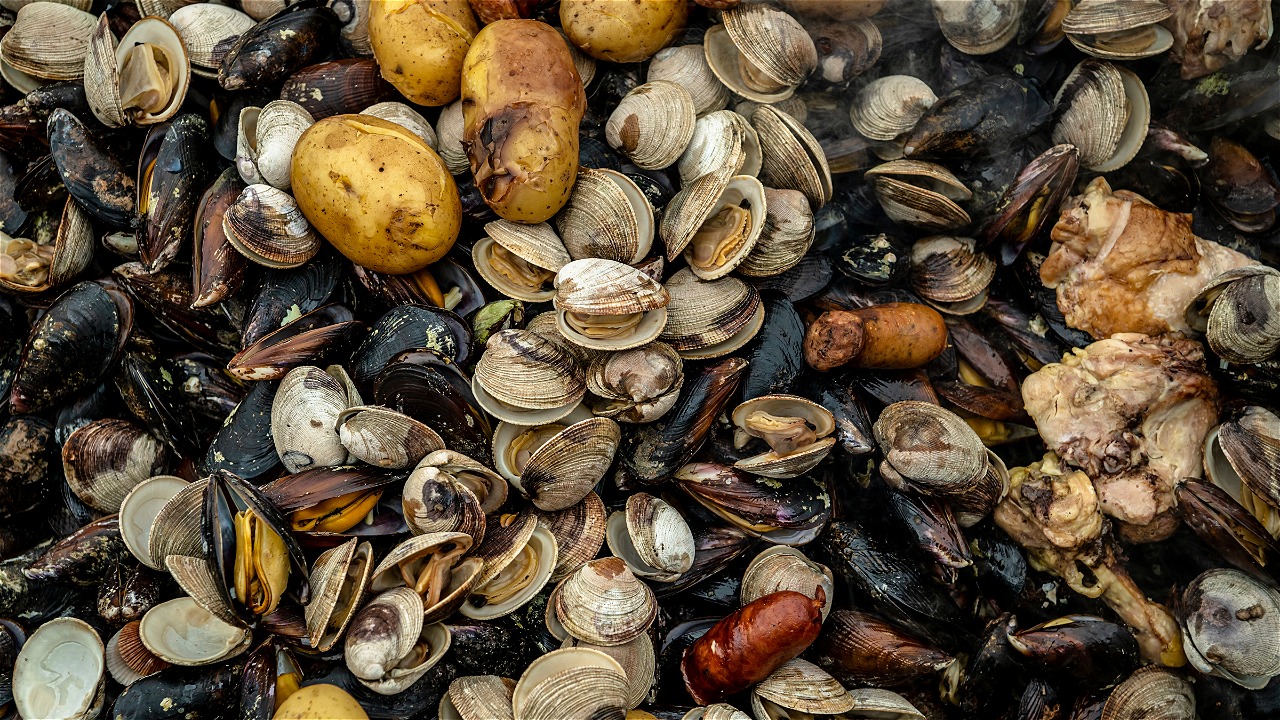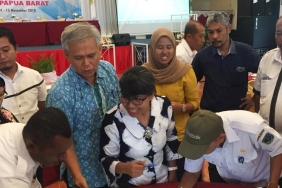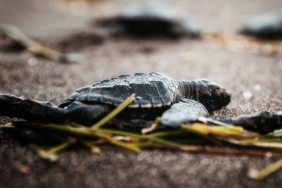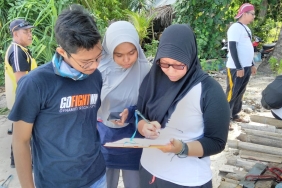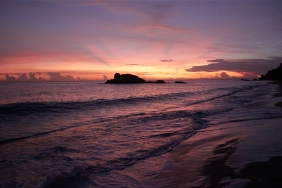SUSTAINABLE SEAFOOD: TASTY TO THE STOMACH, COMFORTING TO THE HEART, AND KIND TO THE EARTH
By: Natalia Trita Agnika
"Where did this fish come from? What was it caught with?" asked Yudhi Sutrisna, a staff member of HSBC Indonesia, pointing to one of the fish in the storage box. Ranggi Fajar Muharam from Fish n' Blues, one of the producers of sustainable seafood products, then explained each type of fish, the area where it was caught, and the fishing gear used. "The packaging contains this information so that buyers can find out," Ranggi added.
The conversation took place at stand Fish n' Blues in the SUNday Fish Market #KnowYourSeafood event organized by WWF-Indonesia on Sunday (30/10) at Synthesis Kemang Residence, Jakarta. The SUNday Fish Market activity is a form of collaboration between WWF-Indonesia and HSBC as part of the East Indonesia Project to broaden the knowledge of HSBC staff about sustainable fisheries.
Not only can they shop for a variety of environmentally friendly seafood products, visitors who mostly bring family members can also directly ask questions about sustainable seafood products. In a casual talk show, Ranggi also gave some tips on how to choose sustainable seafood products, including choosing products that have been labeled MSC (for marine products) and ASC (for freshwater aquaculture products) and choosing seafood that is on the green list in the Seafood Advisor app. Previously, HSBC staff in attendance had been invited to download the Seafood Advisor app, which is available for free on the Play Store. Ranggi emphasized that sustainable fisheries include the correct and environmentally friendly way of fishing, the availability in nature is still abundant, and in favor of the socio-economy of fishing communities.
Insights about sustainable seafood products were also given to children who attended the event. They visited the Panda Mobile truck and did various ocean-themed activities with Panda Mobile's volunteers, such as coloring, reading storybooks, and playing games. Interesting storytelling from Kak Iyan also made the children understand the importance of protecting endangered animals and protecting the environment. The atmosphere was made even more lively by the presence of face painting and a sea-themed photo booth.
The highlight of the SUNday Fish Market event was a cooking demonstration by Chef Nabil Jaghdour, one of the chefs who is committed to using 100% sustainable seafood products in his restaurant. His commitment made Chef Nabil dare to leave his comfort zone and open his own restaurant called Le Monde au Balcon.
"One of the reasons I opened a restaurant that uses 100% sustainable seafood is so that our children and grandchildren can still enjoy seafood. There are many species that are almost extinct every year. If we continue to act like this, there will be no fish left," explains Chef Nabil. "When you eat a dish that comes from sustainable seafood, you are not only making your stomach happy but also making your heart happy because you are doing something good (for the environment and future generations -Red)," said Chef Nabil with a smile.
On this occasion, Chef Nabil cooked three menus, namely menus made from clams, white fish, and tengiri fish supplied by Fish n' Blues. For three lucky participants, Chef Nabil cooked marinated mackerel ala Morocco. In between cooking activities, visitors asked several questions related to sustainable seafood.
Festo Festyanto, HSBC staff felt lucky to be one of the winners and to be able to enjoy the special dishes cooked by Chef Nabil. He also gave a positive response to the SUNday Fish Market event that included families. "This event is good, because it introduces the environment from an early age. Moreover, there was storytelling. This method can directly reach the children," she said. By interacting directly and asking questions about the origin of fish, her horizons became more open. "So far, it's not me who buys fish at home, so I don't know where it comes from hehe," she added. One of the goals of the SUNday Fish Market is for consumers to recognize the seafood they consume and start critically asking sellers about the origin of the seafood they are about to buy. Thus, it is hoped that producers will start to be encouraged to provide sustainable seafood.

